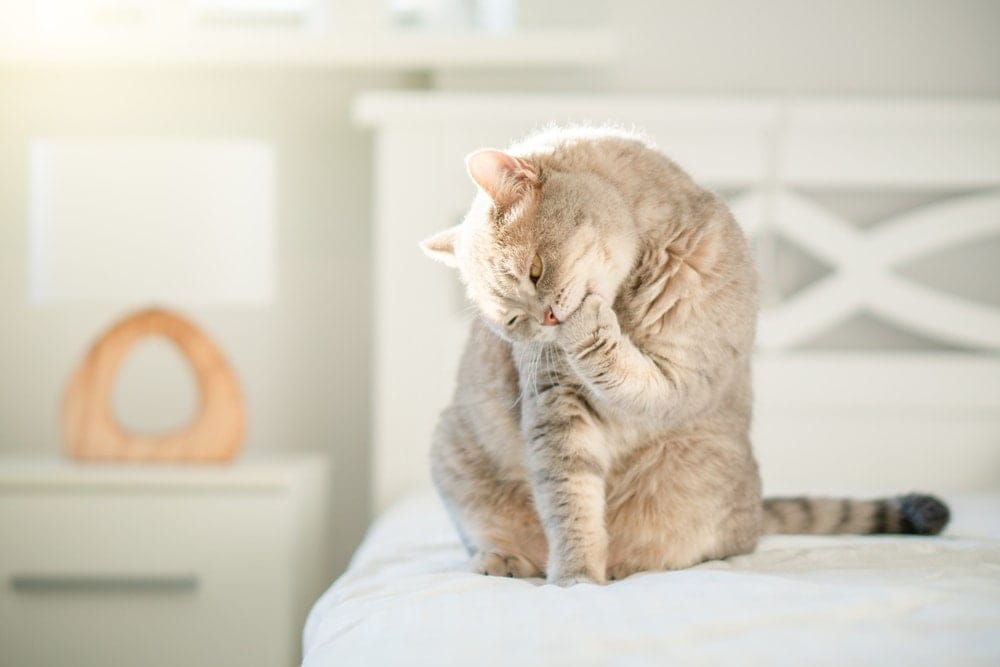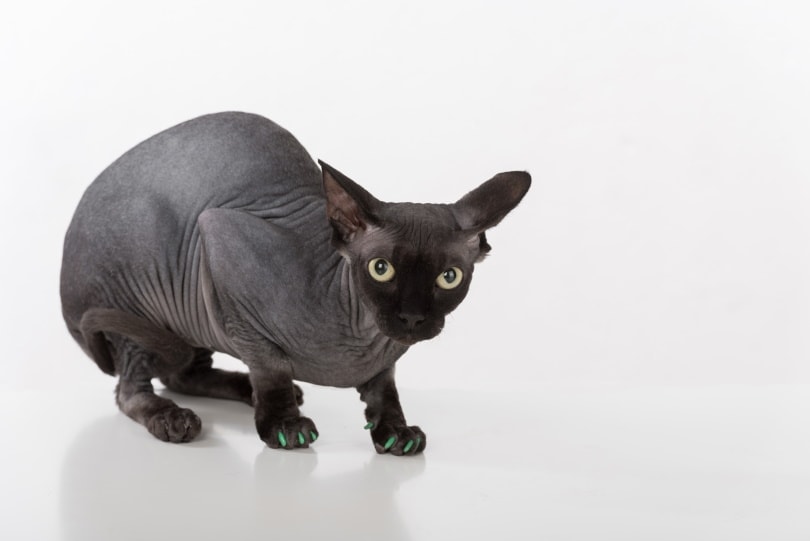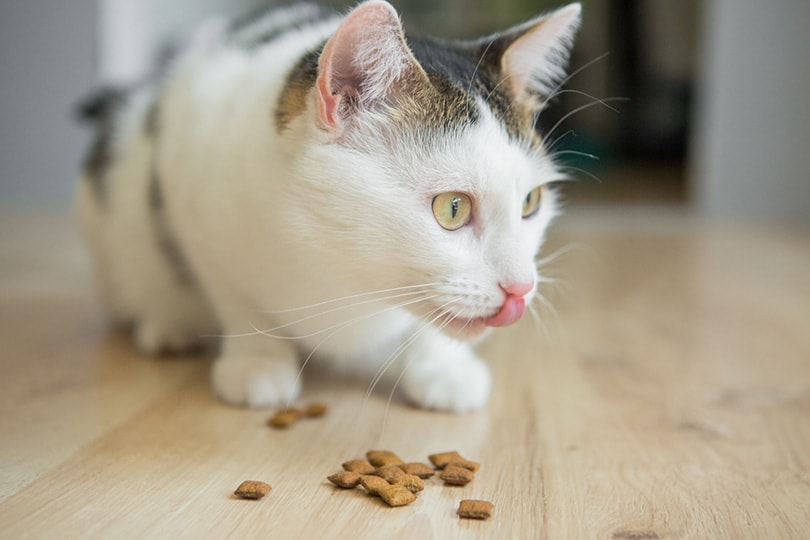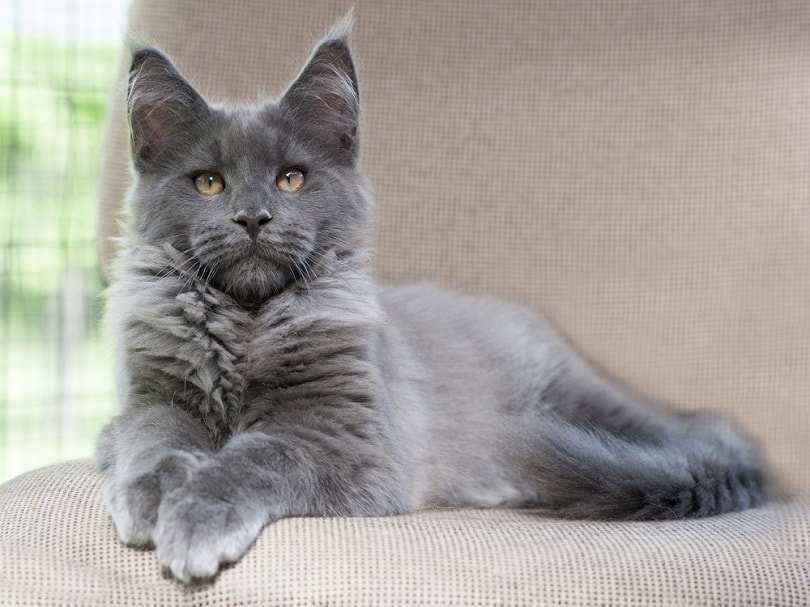If you are looking to answer the question “Why is my cat eating litter? – you have landed on the right spot. Watching your cat munch on litter on more than one occasion would surely be a cause for concern to any cat owner but your desperate search for answers will cease here!
In this guide, you will find the most probable reasons why your cat might be nibbling on his litter and what you can do to stop this abnormal behavior.
Why is my cat eating litter?
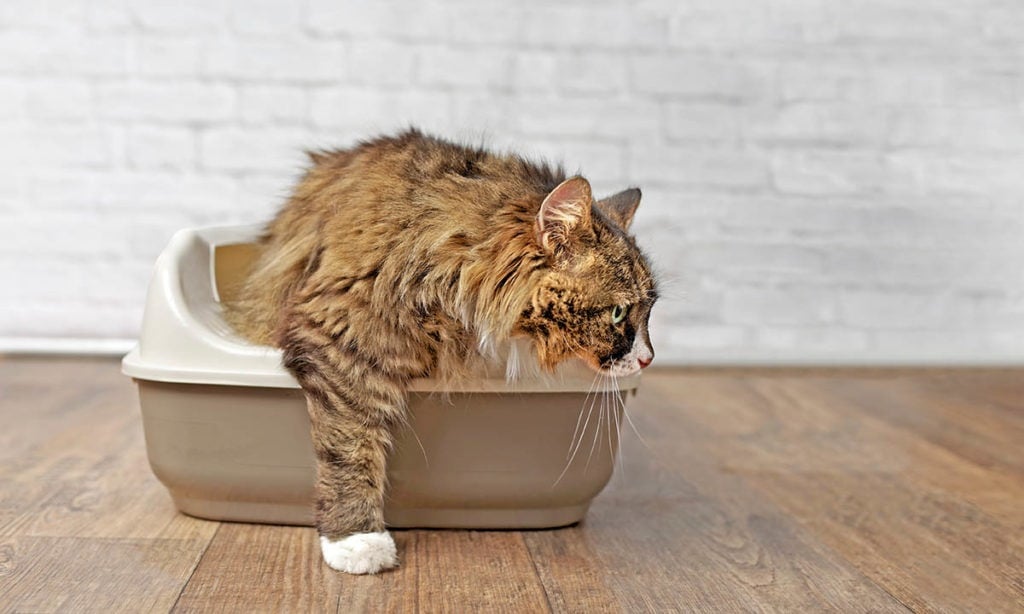
If you’ve caught your cat eating cat litter, it is important to note that they could be doing this for several reasons. In some cases, it might be a result of an underlying health issue and in others, it could simply be a behavior problem. It’s important to understand the right diagnosis first before attempting any corrective measures.
The following are the most common causes of litter-eating behavior in cats.
Anemia
It’s possible that your cat is sick and could be suffering from anemia. This illness occurs when your feline’s red blood cells or hemoglobin are at abnormally low levels.
You should check your cat’s gums to see if they’re white, bluish, or pale. This discoloration is one of the easiest tell-tale symptoms that your cat could be deficient in iron, vitamins, trace minerals, or essential fatty acids.
In much worse cases, litter eating could be a sign of feline leukemia, which also causes anemia.
If you suspect your cat to have anemia, it’s best to consult a veterinarian. They will perform a standard medical test that includes a CBC to examine your kitties red blood count and determine the true root of their anemia.
Nutritional Deficiencies
Another possible reason why your cat is snacking on litter is that he’s not getting enough nutrition from its daily food. He may be lacking in vitamin A, thiamine (vitamin B1), taurine, pyruvate kinase, magnesium, sodium, or a combination of these vitamins and minerals.
Some litters, especially clay-based ones, contain minerals. Interestingly, cats may be drawn to eating such kinds of litter if they’re suffering from nutritional deficiencies.
If you think this is the case with your feline, be sure to visit the vet. They, or a veterinary nutritionist, can give you the necessary guidelines and recommendations for your cat’s diet, as well as the required supplements.
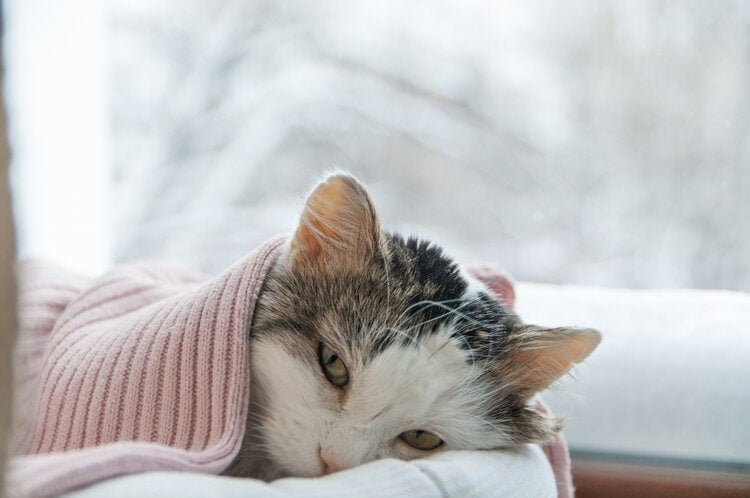
Curious Kittens
Luckily, not every cat that eats litter has an underlying health problem. Some of them, especially kittens, are just too curious about those litter pellets or grains. They’re in their stage of life in which they want to explore and learn through senses — their sense of taste included.
If you see a kitten eating litter, immediately remove the little fellow from the litter box. (If he’s still peeing, you have to let him finish first, of course.)
Also, take note that if a kitten swallows a clumping litter pellet, the litter can cause intestinal blockages and other health complications. So, before you even invite a kitty to the litter box, make sure that what’s inside is toxic-free, non-clumping, and even edible (if possible).
Meanwhile, most cats retain their curious nature even as they grow older. This curiosity is often triggered by change. For instance, you’ve just switched from silica crystal litter to corn or wheat litter. These biodegradable litters that come from edible sources can naturally attract your cat’s curious taste buds.
Some kittens are removed from their mother too soon, especially before they’ve reached the age of eight weeks. As a result, these kittens have been deprived of learning from their mother about doing things properly. This includes how the litter box should be used, and how the litter is supposed to bury their waste, instead of being eaten.
In this case, you’ll need to train the kitten yourself. Teach him about proper litter box behavior so he can distinguish between what is food and what is not.
Kidney Disease
As your cat grows older, his vital organs — including his kidneys — can become less efficient. The kidneys are somewhat forced to work harder to accomplish their job. Thus, older cats are prone to having kidney disease.
Some of the symptoms of kidney disease in cats include general weakness, weight loss, vomiting, and depression, and in some odd cases, litter eating.
If you’ve observed these signs in your cat, be sure to take him to the vet as soon as possible.
The vet will conduct a urinalysis to determine the concentration of your cat’s urine. If it’s too dilute, it may mean that your kitty possibly has kidney disease.
If you need to speak with a vet right now but can’t get to one, head over to JustAnswer. It’s an online service where you can talk to a vet in real time and get the personalized advice you need for your pet — all at an affordable price!
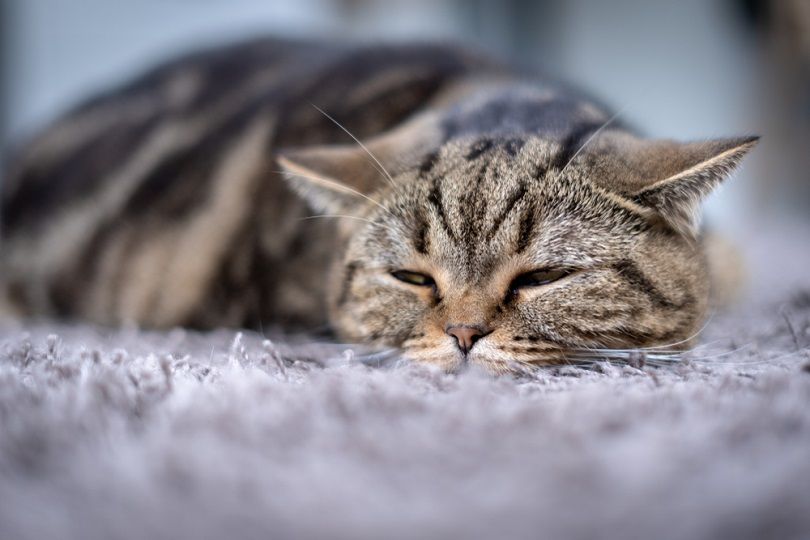
How to stop a cat from eating litter?
If your cat has already been chewing on litter for some time, especially if you’ve been using clumping litter, it’s strongly recommended that you take them to the vet immediately for a checkup to look for any intestinal blockages or other tummy and digestional track issues.
Once you have confirmed your cat’s health is in check, you can start preparing to eliminate or prevent this behavior going forward. Here are a few steps you can take:
Shift to a safe, non-clumping litter
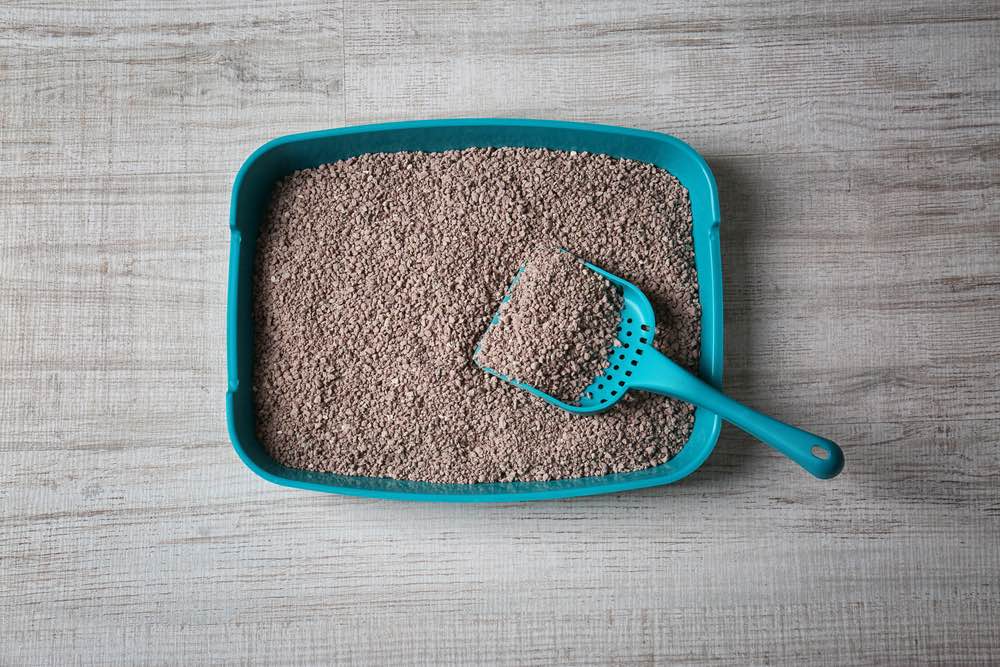
Take this as a precautionary measure. Just in case your cat does it again, at least, this time, it’s a non-clumping litter. If you want to take a step further to the safer side, use a biodegradable and kitten-safe cat litter — even if yours is already a mature adult feline.
Monitor your cat’s litter use
Observe your kitty closely. Remove him from the litter box as soon as he tries to eat the litter. This repeated action will teach them that litter is for bathroom breaks only.
Feed your cat better

Upgrade your cat’s food based on the recommendations of his vet or his veterinary nutritionist. Make sure he’s eating the right amount and in full when offered, and that he has a bowl of fresh and clean water readily available.
Offer other chewing toys

If your cat is just playing detective and is plainly curious, then offer him something else to be curious about. Divert their attention to cat toys or some edible treats.
Give your kitty some catnip
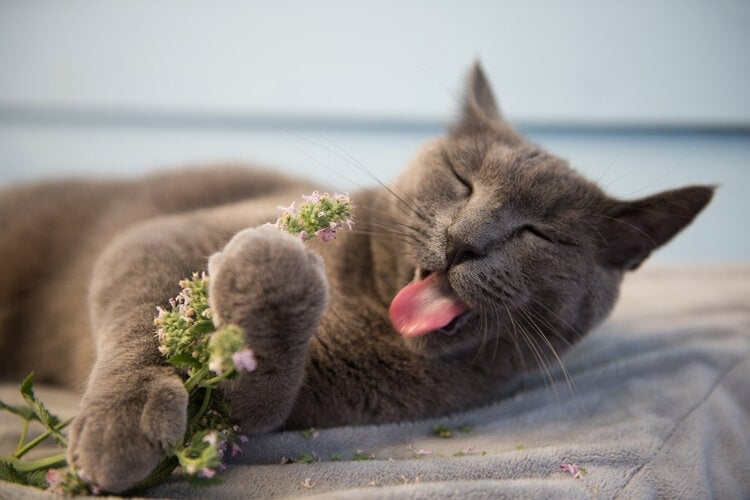
Speaking of igniting your cat’s curiosity, try giving your cat some catnip. Catnip is relatively cheap to keep in stock and is available in toys, sprays and dried flakes. You might also try to grow some so you can have an unlimited supply of new meowy fun.
Spend more playtime with your cat

At times, your cat could be more than bored. He could be craving for your attention. And he could be lashing out by nibbling on litter. We recommend all cat owners take some time each day to play with their pets.
You might even consider allowing them to explore the great outdoors by walking them, or by letting them bird watch. Even better, you can give your cat a partner to play with. It could be another pet or feline.
Have regular visits to the vet
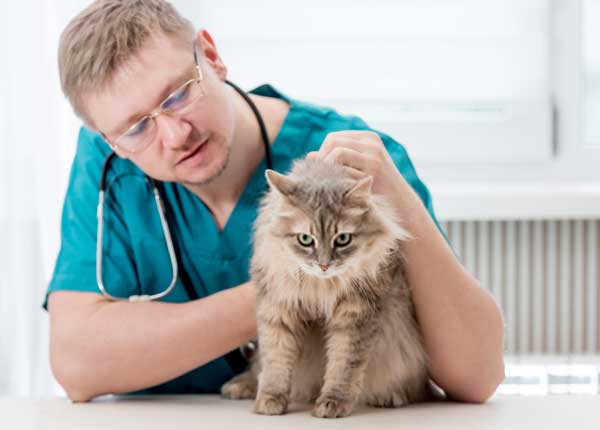
And finally, please stick to a regular vet schedule. Those regular checkups can save more than nine cat lives.
Conclusion
Cats are naturally curious and often nibble on things they’re not supposed to. But if they’re eating litter, you should do everything you can to prevent this odd behavior.
In summary, if your cat is eating litter:
- Investigate why (review the possible reasons above)
- Take your cat to the vet
- Apply the measures we’ve listed above
- Let us know about your experiences in the comments
Feature Image Credit: AntonMaltsev, Shutterstock

